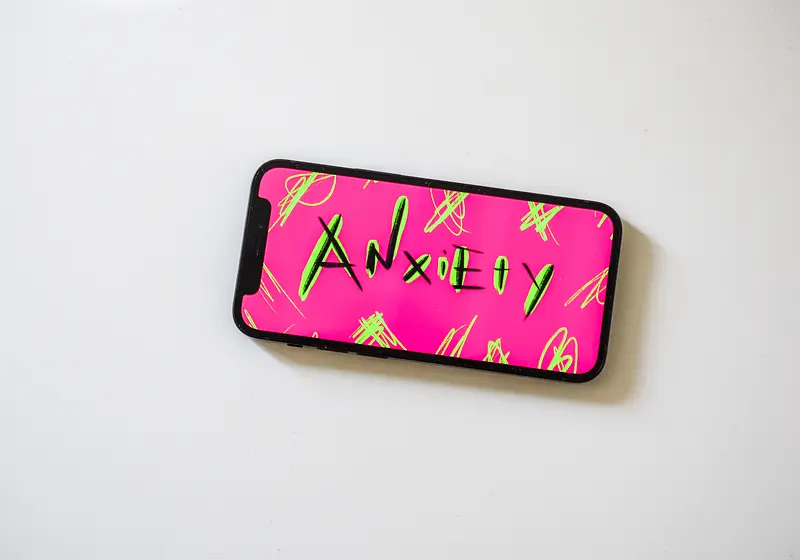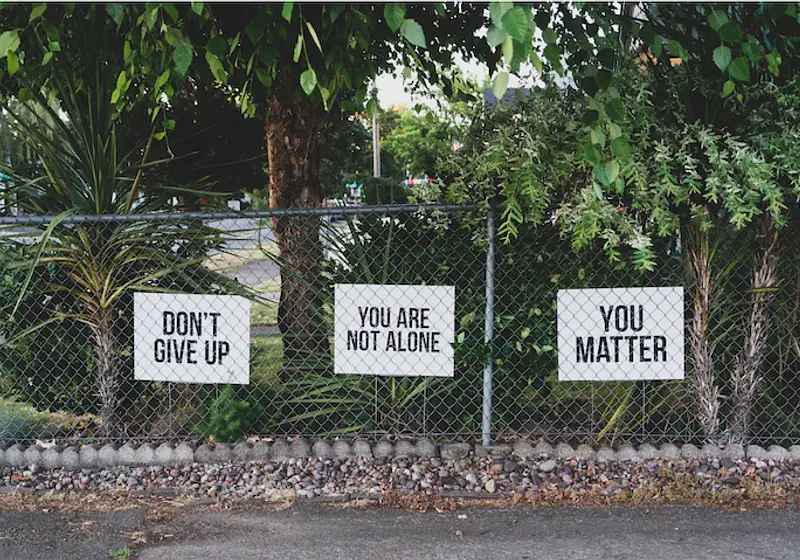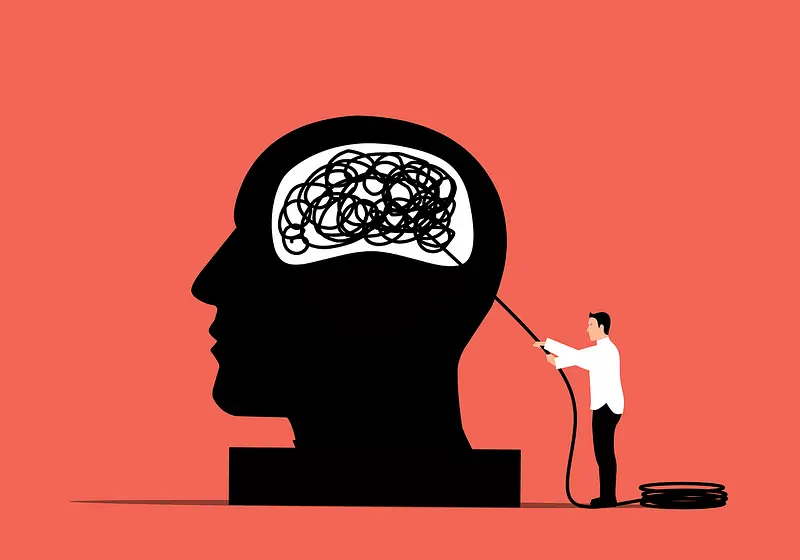The importance of mental health has grown tremendously throughout the years and society's recognition of its significance has also improved. There are several reasons why mental health has gained increasing attention. Studies and research have highlighted the prevalence of mental health issues globally.
Millions of people experience conditions like anxiety, depression, PTSD, bipolar disorder, and others. Recognizing the widespread impact of these conditions has led to a greater focus on addressing mental health. The COVID-19 pandemic has led to an increase in mental health issues. The pandemic has triggered a surge in anxiety and stress levels worldwide. The fear of contracting the virus, uncertainty about the future, and the social isolation resulting from lockdowns and restrictions have all contributed to a rise in mental health issues.
Furthermore, people have stayed online through this process, allowing them to access information relative to what is happening. Multiple articles were published about COVID-19 and mental health. Additionally, the rise of people/influencers talking about their mental struggles has contributed to the increase in awareness and reducing the stigma surrounding mental health.
Mental health advocates, organizations, and healthcare professionals have worked tirelessly to raise awareness and promote education about mental health. These efforts have helped shape public perception and policy around mental health care. People are now more willing to talk openly about their struggles, seek help, and support others on their mental health journeys. All this helps in viewing mental health as a vital component of overall well-being and in acknowledging how much of an impact it has. Just as physical health is essential, mental health plays a critical role in a person's quality of life, relationships, productivity, and ability to cope with challenges.

Image credit: Emily Underwood from Unsplash
Maintaining good mental health is essential for overall well-being. In this article, I will provide some coping skills and resources that can help individuals regulate their anxiety. These resources could also be used for other mental health struggles (e.g. depression). What is anxiety? Anxiety is a normal and often adaptive human emotion. It's a natural response to stress or a perceived threat, helping individuals prepare for potentially challenging situations. However, when anxiety becomes excessive, overwhelming, or persistent, it can be classified as an anxiety disorder. Anxiety disorders are a group of mental health conditions characterized by excessive and uncontrollable feelings of worry, fear, or dread that interfere with daily life.
1. Breathing exercises: Practice deep breathing techniques to calm your nervous system.
I personally struggle with Generalized Anxiety Disorder (GAD) and it can be tough, especially when experiencing anxiety attacks and panic attacks. I never knew breathing can be hard. You are born knowing how to breathe automatically, but it's like I forgot how to breathe and had to learn how to do it all over again. Breathing exercises really helped me.
One effective method that helps me calm down is the box breathing technique in which you inhale for 4 seconds, hold for 4, exhale for 4, hold again for 4, and repeat. Another one is the 4-7-8 technique: inhale for 4 seconds, hold for 7 seconds, and exhale for 8 seconds. This completes one breath.
You can do these breathing exercises until you feel like you are more relaxed. I will provide a link to a breathing GIF that helps lead the viewer through a breathing exercise: Breathe In Help GIF - Find & Share on GIPHY
Just stop and take a moment to breathe.

Image credit: Bob Osias from Unsplash
2. Physical exercise: Regular physical activity can release endorphins and reduce stress. Find an exercise routine that you enjoy, such as walking, jogging, yoga, or dancing.
Sometimes, when I get anxious, I go on a walk outside so that I can get some fresh air and try to calm my racing heart and thoughts.

Image credit: Dane Wetton from Unsplash
3. Positive self-talk: Challenge negative thoughts and replace them with more positive and realistic ones. Be kind and compassionate to yourself.
You have no idea how much our thoughts can mess with us. They cause us to overthink and overstress about stuff that weren't that much of a big deal to begin with.
Overthinking and automatic negative thoughts are common challenges that many people experience. They can significantly impact mental well-being and contribute to feelings of anxiety and stress. Overthinking refers to the tendency to dwell excessively on thoughts, events, or situations. It involves constantly analyzing, replaying, and obsessing over past experiences or worrying about future possibilities. Overthinking can lead to mental fatigue, decreased productivity, and heightened anxiety. Automatic negative thoughts (ANTs) are negative and self-critical thoughts that pop into our minds without conscious effort. They are often irrational and unrealistic, contributing to feelings of self-doubt and low self-esteem. Common examples include catastrophizing (imagining the worst-case scenario), jumping to conclusions, and engaging in black-and-white thinking.
We have to realize and point out when we are experiencing negative thoughts and stop them from becoming too overwhelming. Trying to look at the bright side and think positively in an alternative way helps reduce stress and helps you handle the situation better.

Image credit: Viktor Forgacs from Unsplash
Also, reassuring yourself that everything will be okay is a good way to stabilize yourself. What I also tend to do is hug myself by wrapping my arms around my body or laying down on my bed and rubbing my arms and thighs, which helps me take deep breaths and feel a sense of calm and realize that maybe.... maybe everything will be okay and I just have to think more positively.
4. Mindfulness and Grounding Techniques: Practice mindfulness to become more aware of your thoughts without judgment. Grounding techniques, such as focusing on your senses or deep breathing, can help bring you back to the present moment.
I will provide a link to a pdf with the 54321 Grounding Technique including additional grounding techniques: Grounding Exercises (therapistaid.com)

Image credit: Lesly Juarez from Unsplash
5. Limit caffeine and alcohol: These substances can exacerbate anxiety symptoms. Opt for herbal teas and plenty of water instead.
Caffeine makes me shaky and causes me headaches, so I really almost never drink coffee. Also, alcohol interferes with medications like antidepressants and can cause harmful effects. Be careful about how much you drink from either substance and limit your intake as much as possible.
Instead, as a way to stay hydrated, you can create spa water, which is regular water infused with fruits, herbs, or vegetables. It gives it flavor, with no artificial sweetener, and makes you feel refreshed.

Image credit: Alex Azabache from Unsplash
6. Sleep care and self-care: Prioritize good sleep habits by establishing a consistent sleep schedule and creating a calming bedtime routine.
I have a bad habit of staying up too late and that is usually when I have my anxiety attacks. Allow your body to adjust to a healthy sleeping time and in return you will find yourself feeling more relaxed and energized.
You should take care of yourself by always giving yourself some breaks and doing what you love, like watching a new show, painting, drawing, going out, whatever helps you feel less pressured and makes you feel more like you. It's how you go about managing your time.

Image credit: Icons8 Team from Unsplash
7. Reach out for support: Share your feelings with someone you trust, whether it's a friend, family member, or therapist. Talking about your anxiety can help you process and manage it better.
I try to be with a friend when I am in a panic. The presence of someone who I know well helps me because I know they are here for me in my time of need. Also, them talking to me makes me focus less on what is happening internally and more on my outer surroundings. Never be afraid to reach out, especially to someone you can rely on because they are there for you.

Image credit: Dustin Belt from Unsplash
8. Self-help resources: There are various self-help books, apps, and online resources dedicated to anxiety management. Examples include Wysa, a mental health support app with exercises for managing anxiety, and a chatbot to text with.
There are other free resources available for you to reach out to, like 211 (link: Call 211 for Essential Community Services | United Way 211) which connects you to local resources and support. There is also the Anxiety and Depression Association of America (ADAA) (link: Anxiety Disorders and Depression Research & Treatment | Anxiety and Depression Association of America, ADAA) which promotes prevention, treatment, and support for mental health issues besides anxiety and depression as well.

Image credit: Shiromani Kant from Unsplash
9. Professional help: Don't hesitate to seek support from a mental health professional, such as a therapist or counselor, who can provide personalized strategies and guidance. Avoid self-diagnosing, as similar symptoms to a particular disorder may be caused by different underlying issues. Seeking help from a certified professional will enable them to develop a tailored treatment plan to address your specific needs and reduce any negative symptoms.
Forms of therapy provided:
Cognitive-behavioral therapy (CBT) is an evidence-based therapy that can help individuals identify and change negative thought patterns and behaviors associated with anxiety. There is also Dialectical Behavior Therapy (DBT) that teaches people strategies to live a better and more productive life. Some core skills it can teach you are emotion regulation, mindfulness, and distress tolerance. Here is a link to a website that provides you with the necessary DBT tools: DBT : Dialectical Behavior Therapy - Skills, Worksheets, & Videos

Image credit: Marcel Strauß from Unsplash
10. Support groups: Consider joining a support group for individuals with anxiety. Connecting with others who experience similar challenges can be reassuring and offer valuable insights.
There is a website called "Active Minds" (link: Active Minds - Changing the conversation about mental health) for teens and adults ranging from the age of 14 to 25 years old. It empowers high schoolers and college students to speak out about their mental health struggles and share their stories with others. It also offers resources for self and others.

Image credit: Priscilla Du Preez from Unsplash
11. Mental health hotlines: In times of crisis, helplines like the National Suicide Prevention Lifeline 988 can offer immediate support. Here is the link to it: Lifeline (988lifeline.org)
I am a volunteer crisis counselor on Crisis Text Line (link: Crisis Text Line | Text HOME To 741741 free, 24/7 Crisis Counseling) and on that platform, we provide support to texters in crisis so that they are able to calm down when experiencing a hard moment. Text HOME to 741741 from anywhere in the United States, anytime. Crisis Text Line is free and open 24/7.
A live, trained Crisis Counselor receives the text and responds. We provide help for many issues like anxiety/stress, depression/sadness, grief, eating disorders, suicidal ideations, self-harm, and many more other aspects.

Image credit: Micheile Henderson from Unspash
Remember, coping with anxiety is a process, and it's essential to be patient with yourself. Don't hesitate to try different coping techniques and resources to find what works best for you. If your anxiety is severe or persistent, seeking professional help is crucial. A mental health professional can provide a personalized treatment plan tailored to your specific needs.

















